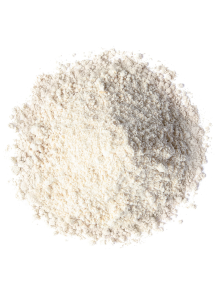Oat bran (Cooked, 80 Mesh)
a popular and nutritious food known for its numerous health benefits
Cart
No products
No products

a popular and nutritious food known for its numerous health benefits
Oat bran is a popular and nutritious food known for its numerous health benefits. Here are some key benefits of including oatmeal in your diet:
Heart Health: Oatmeal is rich in beta-glucan, a type of soluble fiber that can help reduce cholesterol levels. Lowering cholesterol reduces the risk of heart disease.
Blood Sugar Control: The soluble fiber in oatmeal helps slow the absorption of sugar into the bloodstream, which can help regulate blood sugar levels and prevent spikes, making it beneficial for people with diabetes.
Weight Management: Oatmeal is low in calories and high in fiber, which helps you feel full longer. This can reduce overeating and support weight management.
Digestive Health: The fiber in oatmeal aids in digestion and helps prevent constipation by adding bulk to the stool, promoting regular bowel movements.
Rich in Nutrients: Oatmeal is a good source of essential nutrients like manganese, phosphorus, magnesium, copper, iron, zinc, folate, and vitamins B1 and B5.
Antioxidants: Oats contain unique antioxidants called avenanthramides, which have anti-inflammatory properties and can help improve blood flow and lower blood pressure.
Improves Skin Health: Oatmeal has been used in skincare for its soothing properties. It can help relieve itching and irritation from conditions like eczema and dermatitis.
Supports Immune Function: The beta-glucan in oatmeal may enhance the immune system's response to infections by helping immune cells quickly locate the infection sites.
Difference between Cooked and Uncooked Oat Bran
| Mechanism | - |
| Appearance | - |
| Longevity | - |
| Strength | - |
| Storage | - |
| Shelf Life | - |
| Allergen(s) | - |
| Dosage (Range) | - |
| Recommended Dosage | - |
| Dosage (Per Day) | - |
| Recommended Dosage (Per Day) | - |
| Mix Method | - |
| Heat Resistance | - |
| Stable in pH range | - |
| Solubility | - |
| Product Types | - |
| INCI | - |